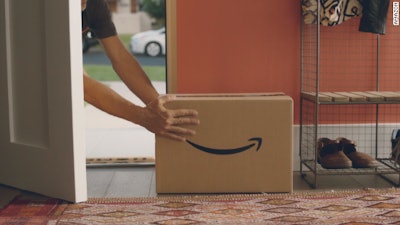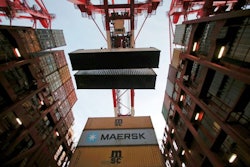
As a merchant, it is always a challenge to work around mistakes committed by shipping carriers to ensure that customers have a great delivery experience. Shipping carriers regularly make more than 50 different errors when handling a shipment. Some of these errors, such as late deliveries, cause a poor customer experience, while others, such as a lost or damaged shipment, hurt a merchant’s bottom line. Amazon’s newest product, Amazon Key, tries to solve problems like product theft and inconvenient deliveries by enabling a delivery person to leave shipments inside the house of a customer even when no one is home.
Interestingly, while Amazon Key does indeed have the potential to save Amazon millions of dollars by eliminating package theft, the real price for this tech is actually paid by end customers who have no responsibility over stolen shipments now. Every customer who opts for the Amazon Key gives up a bit of their privacy and security by installing a lock and camera system that allows delivery associates into the house in their absence. The entire shipping industry today stands on the verge of massive technology changes that can transform when and how last mile deliveries happen, and technology like the Amazon Key is an early sign of what’s to come. This makes it important to pay attention to the path ahead and evaluate how such technology changes could affect different stakeholders including merchants, shipping carriers and end customers.
Current State of the Shipping Industry
The shipping industry is still one area where technology usage is minimal. While technology has made other industries more transparent with data universally available and accessible, a transformation hasn't really happened to the shipping industry up until now. Shipping been dominated by major carriers like FedEx and UPS for a long time. Every merchant was forced to play by the rules set by FedEx and UPS, thus having to settle for the service standards they set and the limited data they provided access to.
However, shipping is a commodity. Merchants only care about the package getting from point A to point B, with little regard to how gets it there.
As technology turns its attention to the shipping industry, rapid change and progress is expected to catch up with other industries where technology is heavily involved. . It's easy to look around and find how much tech has made a difference to the way people shop or the cars they drive. However, very little has changed when it comes to packages being delivered to costumers’ doorsteps. For consumers, it's still nearly impossible to have a package delivered at a convenient time, and it still hasn’t become any easier to work with shipping carriers or have better control over last-mile deliveries for merchants.
How Technology Like Amazon Key Will Change the Shipping Industry
When tech starts playing a bigger role in the shipping space, it will bring trust and transparency to the industry. It's bound to become easier for both merchants and customers to not only have complete access to the data they need but also be in control of when and how a delivery is executed. The tight control and significant entry barriers that FedEx and UPS protected themselves with are likely to erode and finally fall apart. Eventually reducing shipping carriers to becoming interchangeable intermediaries that do not wield the market power they currently enjoy.
With the advent of technology tools and new delivery methods, retailers are starting to learn not to settle for what shipping carriers claim is possible. They are realizing they have a responsibility toward customer experience, and that does not conclude with just getting an order out on time, but extends to the last-mile delivery. Customers are starting to expect a first-rate delivery experience with every order and are not shy about holding merchants accountable. While alternatives like Amazon Key will help retailers provide a better customer experience than conventional FedEx or UPS deliveries, companies will also look to demand more control from shipping carriers over their deliveries and hold carriers accountable for performance through services that track packages and provide refunds.
Why Merchants Are Addressing Shipping Errors Now
Even though packages have been shipped for decades, shipping has always been a secondary activity for most merchants. Dealing with dominating shipping carriers was simply a necessary evil. Previously, this didn’t matter much as customer expectations from shipping were relatively low. In fact, less than a decade ago, seven- to 10-day shipping times were the industry standard and mistakes were tolerated by both merchants and customers as the norm.
However, the advent of e-commerce meant these online merchants had to find a way to compete with the advantage brick-and-mortar stores. E-commerce drastically shortened delivery windows, so customers have grown to expect deliveries to arrive in two to three days.
Now, when delivery windows can’t be shortened much more, attention is slowly turning toward differentiation through providing a better customer delivery experience with products like Amazon Key. This also happens to be the time when tech is finally starting to make a great push into the opaque shipping industry, finally freeing customers of the shipping carrier stranglehold and giving them the data, choices and control they seek. The combination of technology and merchants seeking to provide a better experience for customers means merchants are starting to pay more attention to how shipping carriers perform, hold them accountable for the errors they make and stop as many of the mistakes as possible before they affect their customers.
The smartest merchants have quickly figured this out to gain a competitive advantage as it directly affects their customer experience and loyalty. In the cutthroat e-commerce environment, where every tiny advantage matters, reducing shipping errors that affect customers is a treasure chest for which tech has just found the keys to.
![Pros To Know 2026 [color]](https://img.sdcexec.com/mindful/acbm/workspaces/default/uploads/2025/08/prostoknow-2026-color.mduFvhpgMk.png?auto=format%2Ccompress&bg=fff&fill-color=fff&fit=fill&h=100&q=70&w=100)








![Pros To Know 2026 [color]](https://img.sdcexec.com/mindful/acbm/workspaces/default/uploads/2025/08/prostoknow-2026-color.mduFvhpgMk.png?ar=16%3A9&auto=format%2Ccompress&bg=fff&fill-color=fff&fit=fill&h=135&q=70&w=240)








